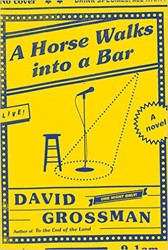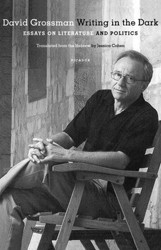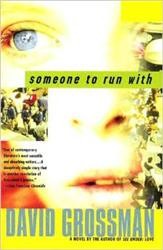1967. Three ill teenagers — flame-haired Ora; Avram, wild with imagination and exotic knowledge; and Ilan, later his companion in all exploits — meet in the isolation ward of a hospital. Young, vulnerable, eager for themselves and one another, they come together nightly in the almost dreamlike prologue to this powerful and memorable novel.
2000. Thirty-three years later, Ora is alone. Ilan has recently left her, and she has just dropped their younger son at his army unit’s meeting point for an emergency call up. In a rush of magical thinking, she decides that she can protect her son by taking a hike in the Galilee that she had planned for the two of them. She will disappear, and the notifiers, the bearers of the unbearable news, will not find her. As she makes the final preparations for the hike, the phone rings. Avram, Avram who has not spoken with her for three years, Avram who crawled into a shell decades ago after surviving horrific torture as a prisoner in the Sinai campaign. Literally dragging him from his apartment, Ora takes Avram to the Galilee with her.
Over their long days and nights together, walking through bright spring blooms with valleys opening before them, Ora and Avram reel back through their lives, apart and together. Slowly, moving backward and across time, the story of the three intertwined friends and lovers unfolds. It is a story of complex and intimate connections marked by multiple loves — love that creates a family, sensual love, love between inseparable friends, love for army comrades, love of the very earth Ora and Avram are treading — all shaped by inescapable war and the tensions it imposes.
Beautifully written and fully realized, this is a novel of great depth and artistry. David Grossman, one of Israel’s most honored writers, conveys the vitality and humanity of every character, etched against the intensity and pain of life in the daily presence of an enemy. There is not a page of this book that does not call out for an end to war.
Maron L. Waxman, retired editorial director, special projects, at the American Museum of Natural History, was also an editorial director at HarperCollins and Book-of-the-Month Club.





